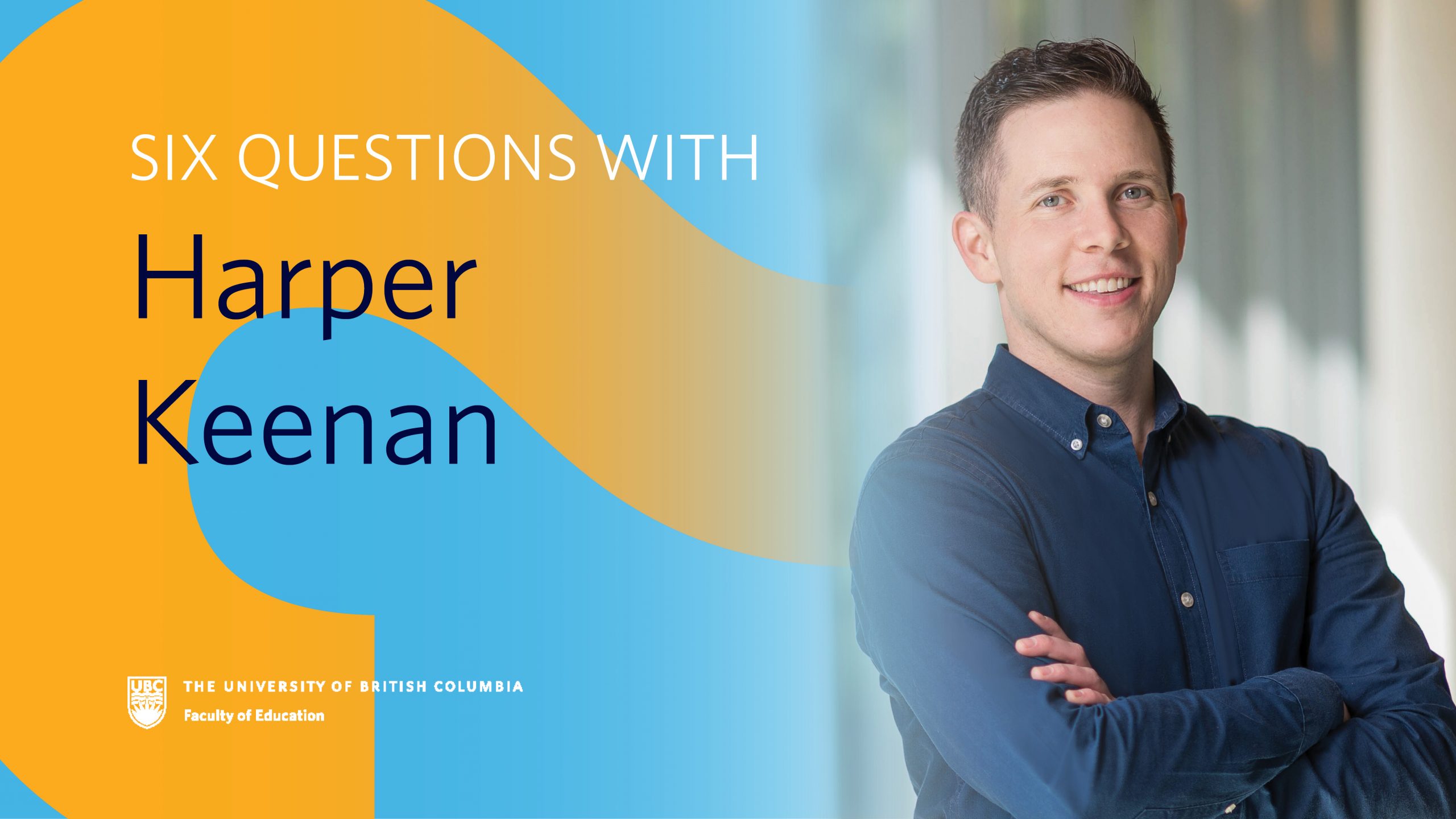June 24, 2021
Six Questions with Dr. Harper Keenan
This Pride Month we are celebrating the work of Dr. Harper Keenan, the Robert Quartermain Professor of Gender and Sexuality Research in Education at UBC. Dr. Keenan’s research analyzes how adults teach children to make sense of the social world. Much of his work investigates the management, or scripting, of children’s knowledge, and ways that educators and their students might work together to interrupt that process and imagine something different. We asked Dr. Keenan six questions to learn more about his work.
What scholarly projects are you currently working on?
Right now, I am working on three projects. The first is a mixed-methods study funded in part through the Spencer Foundation, which investigates the experiences of transgender people working in K-12 schools in the US and Canada. I am leading that project in collaboration with my colleagues Mollie McQuillan at the University of Wisconsin-Madison, and Mario Suárez at Utah State University. We aim to better understand the working conditions that trans people face as workers in public institutions, and what employers can to do best support them. A second project funded by SSHRC is engaging with teachers and students in the primary years – specifically Kindergarten and Grade 1 – to learn more about how and what children learn about the social meaning of race and gender from their earliest years in school. Finally, I’ve got a third interview-based study going that engages with a small group of transgender activists, artists, and community-based educators working outside of K-12 schools to identify how transgender people share knowledge with each other outside of formal schooling.
What is a research topic you’d like to work on in the future?
I think these projects will keep me pretty busy for a while, but I will say that I am really looking forward to being able to get back into classrooms to work with kids and teachers once many of the COVID-19 restrictions begin to lift. Spending time with kids and teachers helps me to deepen my own analysis and also to ensure that my scholarship is engaged with the realities of K-12 schools. It’s also so much more fun than only sitting at home on my computer!
Who inspires you and why?
Every day, I am inspired by the kids who challenge the adults in their lives to rethink why things are the way they are.
What is your least favourite part of your job?
I don’t like the emphasis on competition that often dominates a lot of academia. For those of us whose work engages with communities outside the academy, or with social movements, our work relies on coalition building that requires a great deal of time and care.
If you could have a super power what would it be?
It might be cliché, but I’d really like to be able to fly. It would be pretty amazing to be able to see the world from above, and to get to move with that kind of freedom.
What does Pride Month mean to you?
I have mixed feelings about Pride Month. These days, we see lots of corporations taking advantage of Pride to sell everything from shoes to vacation packages, which risks eclipsing the origins of Pride as a protest against police violence. As Pride is increasingly used as a marketing tool, it can often trick us into thinking that 2SLGBTQ+ people no longer face any kind of oppression, but that isn’t the case. Two spirit, queer, and trans people continue to face enormous challenges in public systems, from immigration to education to health care. For me, Pride is a time to reflect on the history of 2SLGBTQ+ political struggles, to celebrate the legacies of our ancestors, and to fight for a more livable future for us all.
Learn more about Dr. Keenan’s work.
